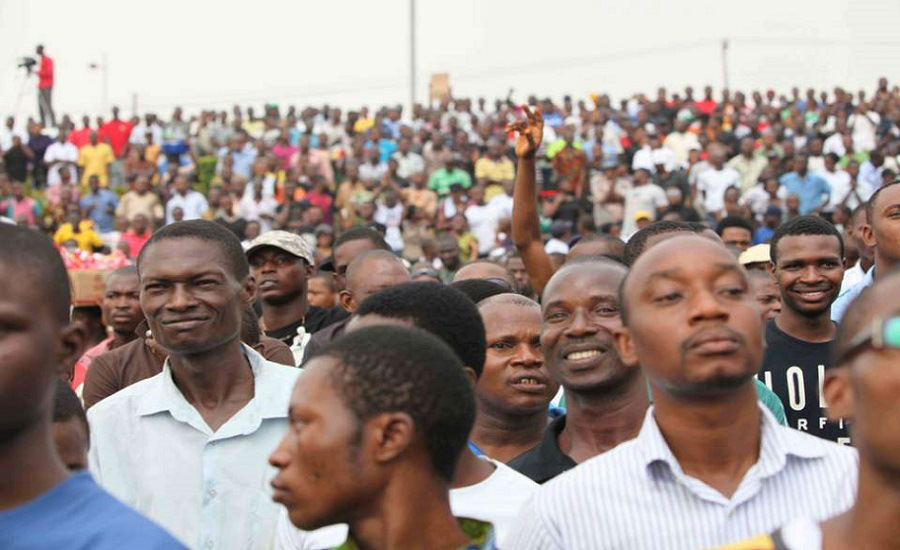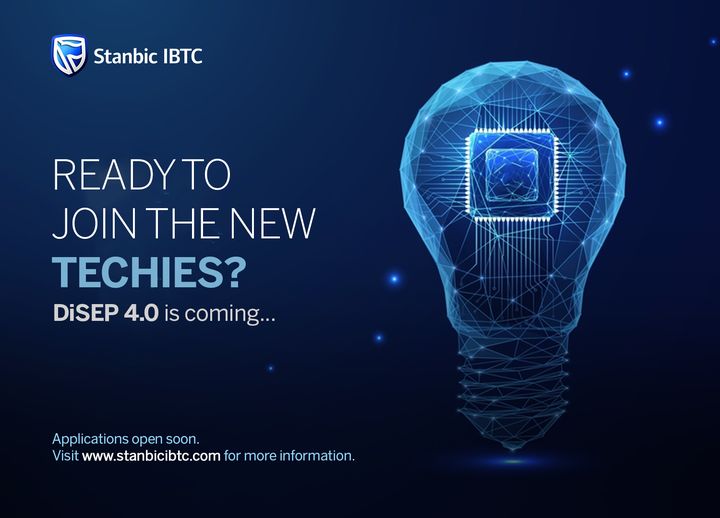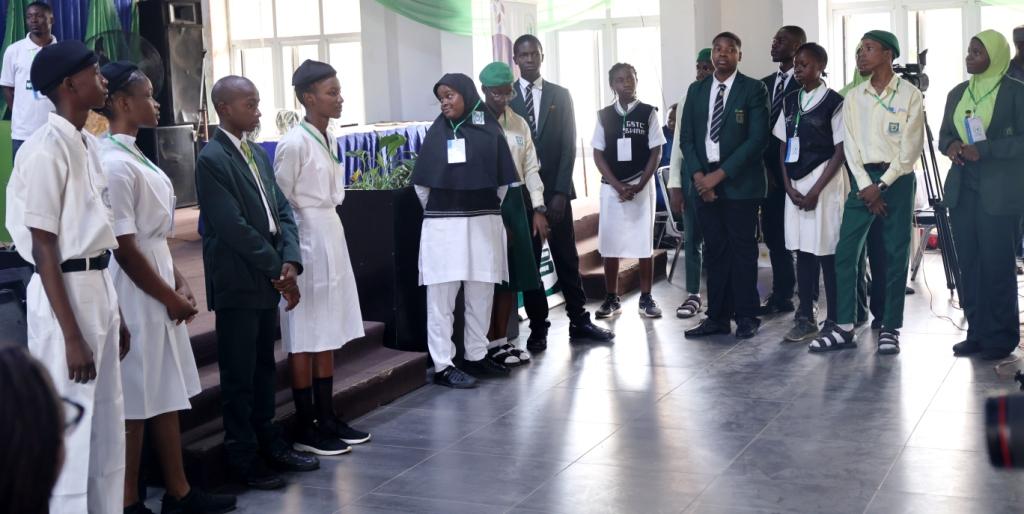Feature/OPED
2023 and Nigerian Youth’s Predicaments

By Jerome-Mario Utomi
Nigerian’s version of democracy shares common features with the human brain and immune system. The two, in my view, had something important in common.
First, medical professionals believe that neither the brain nor the immune system is fully formed at birth but continues to develop rapidly during infancy. Humans have the longest extended period of the infancy of any creature in nature- with profound implication/tendency for absorbing vast amounts of culture, tradition and belief into the operating system of our brains.
Likewise, democracy in Nigeria has recorded over two decades of unbroken practice, yet, like the brain and human immune system, it is far from being fully formed, but continues to develop slowly.
Presently, it will not be characterized as an overstatement to conclude that Nigeria’s democratic experiment is among the world’s longest extended period of infancy- with profound implication/tendency for absorbing vast amounts of undemocratic culture, tradition and belief into the operating system.
Take as another example, in this clime, “youths are the leaders of tomorrow” has become a form of a mantra, a sermon by our leaders that we can describe as gospel without the truth. They preach this without taking pragmatic steps to develop or design strategies that will help it see the light of day.
The youths in particular are also beginning to view it as a one-sided narrative especially when it is coming from our present crop of leaders. It has become an epigrammatic tale that revolves around a particular plot constructed around the electioneering, with the sole aim of achieving an electoral victory.
In most cases, this becomes more of a slogan or anthem for the political parties. It lasts as long as the electioneering period and fizzles out as soon as the winners emerge. Youths are never assured again that they are “the leaders of tomorrow” till the next electioneering campaign. And the cycle goes on and on. This has been the grim fate and burden that successive generations of Nigerian youths have grappled with since 1960.
However, it is of considerable significance to state that, apart from the above concerns, there exist other factors preventing the youths from achieving political/public offices despite their demographic advantage or the glamour that graced their much-celebrated #EndSARS campaign recently embarked on.
Take, as an illustration, a friend recently argued that the present crop of Nigerian youths cannot get to the next phase of the nation’s political project or achieve their leadership vision without a grander mindset.
To quote him; never mind the huge excitement of the excited youth, power lies in the hands of the eminent fathers of Nigeria, though the youth has the noise. I understand power, not noise, in politics. That’s why it appears I am not as agitated as the average Nigerian youth in my quest.
Politics is power; it is not noise or mere youthful exuberance. This is the reality everywhere, including Canada and the entire West. Politics is not straightforward anywhere like Nigerian youth fantasize it to be. Everything is not based on ‘competence.’ Favour must back competence for competence to be relevant in politics. Sometimes this plays out behind the scenes, away from the impressionable eyes and ears of the gullible youth’.
To support the above idea, the need for a shift in the nation’s leadership structure has in my view, become inevitable and eminently desirable to accommodate young technocrats who can take responsibility for their actions and results, be accountable where previous administrations were not, and tell the truth about their failures without blame games.
But one fundamental obstacle that will in the opinion of this piece, prevent this from coming to fruition is the subjective view of the electoral process/positions by the youths as a right which must be given, even in the face of obvious inabilities, and gross absence of planned programmes and pragmatic strategies to making a positive impact by the power-seeking youths.
To Nigerians with discerning minds, electoral exercise as practised the world over is both programme and strategy based and a keen contest where the candidates with the best programme and realistic strategies for achieving that programme is given priority/favoured by the electorates. The youths at the moment, have neither been programme specific nor strategy concerned.
Also, from investigations, seeking an elective position with the aim of effecting political and socioeconomic change is synonymous with fighting for emancipation from captivity which is never voluntarily given without personal sacrifice/ self-denials; as the beneficiaries of the old order will do everything to thwart the moves. Very objectively, Nigerians are yet to see such sacrifice, be it ideological or material from the youths. The situation is even made worse as some of the youths for pecuniary benefits work across purpose while others have settled for political crumbs that fall from ‘the masters’ table.
It will, however, be antithetical to support a movement based on sentiment or allow sentiment to determine our actions. What the youths currently projects in my view is well-intentioned but pragmatically vague, variable and ungraspable to be taken seriously as their actions and strategies are masked in ambiguity with unclear vision and blurred goals.
For the youths to be taken seriously, therefore, what Nigerians expect is a development of potentials that are politically new, something that is not yet known and not in existence, which will establish new political configurations.
This is an imperative demand as their political survival should not be left to chance just as anyone that fails to search for his potential leaves his survival to chance. Very instructive also, the argument for a generational change from the head and the placement of our fate in our youths who had integrity, energy and the drive to recognize that extraordinary conditions call for extraordinary solutions is indispensable but must be accompanied by a reassurance from the youths.
Another contentious challenge that may in the estimation of the vast majority scuttle this ambition is the belief that the electoral project in Nigeria is capital intensive while Nigerian youths are financially placed at the base of the pyramid.
The assertion about the huge financial involvement in my views is in order but may not be completely correct, as the argument was not only sophistry but antithetical to building a nation devoid of corruption and goes against the global warning on corruption as succulently pointed out.
‘A precondition for an honest government is that candidates must not need large sums to get elected, or it must trigger off the circle of corruption. Having spent a lot of money to get elected, winners must recover their costs and possibly accumulate funds for the next election as the system is self-perpetuating.’
To make an impact in the forthcoming general election, therefore, what the youths urgently need is the creation of innovative ideas that electorates can buy into, building of alliances/coalitions with various pressure groups and being ecumenical in movement with already existing coalitions or political parties.
Jerome-Mario Utomi is the Programme Coordinator (Media and Public Policy) of Social and Economic Justice Advocacy (SEJA), a Lagos-based Non-Governmental Organization (NGO). He can be reached via Je*********@***oo.com/08032725374
Feature/OPED
How Christians Can Stay Connected to Their Faith During This Lenten Period

It’s that time of year again, when Christians come together in fasting and prayer. Whether observing the traditional Lent or entering a focused period of reflection, it’s a chance to connect more deeply with God, and for many, this season even sets the tone for the year ahead.
Of course, staying focused isn’t always easy. Life has a way of throwing distractions your way, a nosy neighbour, a bus driver who refuses to give you your change, or that colleague testing your patience. Keeping your peace takes intention, and turning off the noise and staying on course requires an act of devotion.
Fasting is meant to create a quiet space in your life, but if that space isn’t filled with something meaningful, old habits can creep back in. Sustaining that focus requires reinforcement beyond physical gatherings, and one way to do so is to tune in to faith-based programming to remain spiritually aligned throughout the period and beyond.
On GOtv, Christian channels such as Dove TV channel 113, Faith TV and Trace Gospel provide sermons, worship experiences and teachings that echo what is being practised in churches across the country.
From intentional conversations on Faith TV on GOtv channel 110 to true worship on Trace Gospel on channel 47, these channels provide nurturing content rooted in biblical teaching, worship, and life application. Viewers are met with inspiring sermons, reflections on scripture, and worship sessions that help form a rhythm of devotion. During fasting periods, this kind of consistent spiritual input becomes a source of encouragement, helping believers stay anchored in prayer and mindful of God’s presence throughout their daily routines.
To catch all these channels and more, simply subscribe, upgrade, or reconnect by downloading the MyGOtv App or dialling *288#. You can also stream anytime with the GOtv Stream App.
Plus, with the We Got You offer, available until 28th February 2026, subscribers automatically upgrade to the next package at no extra cost, giving you access to more channels this season.
Feature/OPED
Turning Stolen Hardware into a Data Dead-End

By Apu Pavithran
In Johannesburg, the “city of gold,” the most valuable resource being mined isn’t underground; it’s in the pockets of your employees.
With an average of 189 cellphones reported stolen daily in South Africa, Gauteng province has become the hub of a growing enterprise risk landscape.
For IT leaders across the continent, a “lost phone” is rarely a matter of a misplaced device. It is frequently the result of a coordinated “snatch and grab,” where the hardware is incidental, and corporate data is the true objective.
Industry reports show that 68% of company-owned device breaches stem from lost or stolen hardware. In this context, treating mobile security as a “nice-to-have” insurance policy is no longer an option. It must function as an operational control designed for inevitability.
In the City of Gold, Data Is the Real Prize
When a fintech agent’s device vanishes, the $300 handset cost is a rounding error. The real exposure lies in what that device represents: authorised access to enterprise systems, financial tools, customer data, and internal networks.
Attackers typically pursue one of two outcomes: a quick wipe for resale on the secondary market or, far more dangerously, a deep dive into corporate apps to extract liquid assets or sellable data.
Clearly, many organisations operate under the dangerous assumption that default manufacturer security is sufficient. In reality, a PIN or fingerprint is a flimsy barrier if a device is misconfigured or snatched while unlocked. Once an attacker gets in, they aren’t just holding a phone; they are holding the keys to copy data, reset passwords, or even access admin tools.
The risk intensifies when identity-verification systems are tied directly to the compromised device. Multi-Factor Authentication (MFA), widely regarded as a gold standard, can become a vulnerability if the authentication factor and the primary access point reside on the same compromised device. In such cases, the attacker may not just have a phone; they now have a valid digital identity.
The exposure does not end at authentication. It expands with the structure of the modern workforce.
65% of African SMEs and startups now operate distributed teams. The Bring Your Own Device (BYOD) culture has left many IT departments blind to the health of their fleet, as personal devices may be outdated or jailbroken without any easy way to know.
Device theft is not new in Africa. High-profile incidents, including stolen government hardware, reinforce a simple truth: physical loss is inevitable. The real measure of resilience is whether that loss has any residual value. You may not stop the theft. But you can eliminate the reward.
Theft Is Inevitable, Exposure is Not
If theft cannot always be prevented, systems must be designed so that stolen devices yield nothing of consequence. This shift requires structured, automated controls designed to contain risk the moment loss occurs.
Develop an Incident Response Plan (IRP)
The moment a device is reported missing, predefined actions should trigger automatically: access revocation, session termination, credential reset and remote lock or wipe.
However, such technical playbooks are only as fast as the people who trigger them. Employees must be trained as the first line of defence —not just in the use of strong PINs and biometrics, but in the critical culture of immediate reporting. In high-risk environments, containment windows are measured in minutes, not hours.
Audit and Monitor the Fleet Regularly
Control begins with visibility. Without a continuous, comprehensive audit, IT teams are left responding to incidents after damage has occurred.
Opting for tools like Endpoint Detection and Response (EDR) allows IT teams to spot subtle, suspicious activities or unusual access attempts that signal a compromised device.
Review Device Security Policies
Security controls must be enforced at the management layer, not left to user discretion. Encryption, patch updates and screen-lock policies should be mandatory across corporate devices.
In BYOD environments, ownership-aware policies are essential. Corporate data must remain governed by enterprise controls regardless of device ownership.
Decouple Identity from the Device
Legacy SMS-based authentication models introduce avoidable risk when the authentication channel resides on the compromised handset. Stronger identity models, including hardware tokens, reduce this dependency.
At the same time, native anti-theft features introduced by Apple and Google, such as behavioural theft detection and enforced security delays, add valuable defensive layers. These controls should be embedded into enterprise baselines rather than treated as optional enhancements.
When Stolen Hardware Becomes Worthless
With POPIA penalties now reaching up to R10 million or a decade of imprisonment for serious data loss offences, the Information Regulator has made one thing clear: liability is strict, and the financial fallout is absolute. Yet, a PwC survey reveals a staggering gap: only 28% of South African organisations are prioritising proactive security over reactive firefighting.
At the same time, the continent is battling a massive cybersecurity skills shortage. Enterprises simply do not have the boots on the ground to manually patch every vulnerability or chase every “lost” terminal. In this climate, the only viable path is to automate the defence of your data.
Modern mobile device management (MDM) platforms provide this automation layer.
In field operations, “where” is the first indicator of “what.” If a tablet assigned to a Cape Town district suddenly pings on a highway heading out of the city, you don’t need a notification an hour later—you need an immediate response. An effective MDM system offers geofencing capabilities, automatically triggering a remote lock when devices breach predefined zones.
On Supervised iOS and Android Enterprise devices, enforced Factory Reset Protection (FRP) ensures that even after a forced wipe, the device cannot be reactivated without organisational credentials, eliminating resale value.
For BYOD environments, we cannot ignore the fear that corporate oversight equates to a digital invasion of personal lives. However, containerization through managed Work Profiles creates a secure boundary between corporate and personal data. This enables selective wipe capabilities, removing enterprise assets without intruding on personal privacy.
When integrated with identity providers, device posture and user identity can be evaluated together through multi-condition compliance rules. Access can then be granted, restricted, or revoked based on real-time risk signals.
Platforms built around unified endpoint management and identity integration enable this model of control. At Hexnode, this convergence of device governance and identity enforcement forms the foundation of a proactive security mandate. It transforms mobile fleets from distributed risk points into centrally controlled assets.
In high-risk environments, security cannot be passive. The goal is not recovery. It is irrelevant, ensuring that once a device leaves authorised hands, it holds no data, no identity leverage, and no operational value.
Apu Pavithran is the CEO and founder of Hexnode
Feature/OPED
Daniel Koussou Highlights Self-Awareness as Key to Business Success

By Adedapo Adesanya
At a time when young entrepreneurs are reshaping global industries—including the traditionally capital-intensive oil and gas sector—Ambassador Daniel Koussou has emerged as a compelling example of how resilience, strategic foresight, and disciplined execution can transform modest beginnings into a thriving business conglomerate.
Koussou, who is the chairman of the Nigeria Chapter of the International Human Rights Observatory-Africa (IHRO-Africa), currently heads the Committee on Economic Diplomacy, Trade and Investment for the forum’s Nigeria chapter. He is one of the young entrepreneurs instilling a culture of nation-building and leadership dynamics that are key to the nation’s transformation in the new millennium.
The entrepreneurial landscape in Nigeria is rapidly evolving, with leaders like Koussou paving the way for innovation and growth, and changing the face of the global business climate. Being enthusiastic about entrepreneurship, Koussou notes that “the best thing that can happen to any entrepreneur is to start chasing their dreams as early as possible. One of the first things I realised in life is self-awareness. If you want to connect the dots, you must start early and know your purpose.”
Successful business people are passionate about their business and stubbornly driven to succeed. Koussou stresses the importance of persistence and resilience. He says he realised early that he had a ‘calling’ and pursued it with all his strength, “working long weekends and into the night, giving up all but necessary expenditures, and pressing on through severe setbacks.”
However, he clarifies that what accounted for an early success is not just tenacity but also the ability to adapt, to recognise and respond to rapidly changing markets and unexpected events.
Ambassador Koussou is the CEO of Dau-O GIK Oil and Gas Limited, an indigenous oil and natural gas company with a global outlook, delivering solutions that power industries, strengthen communities, and fuel progress. The firm’s operations span exploration, production, refining, and distribution.
Recognising the value of strategic alliances, Koussou partners with business like-minds, a move that significantly bolsters Dau-O GIK’s credibility and capacity in the oil industry. This partnership exemplifies the importance of building strong networks and collaborations.
The astute businessman, who was recently nominated by the African Union’s Agenda 2063 as AU Special Envoy on Oil and Gas (Continental), admonishes young entrepreneurs to be disciplined and firm in their decision-making, a quality he attributed to his success as a player in the oil and gas sector. By embracing opportunities, building strong partnerships, and maintaining a commitment to excellence, Koussou has not only achieved personal success but has also set a benchmark for future generations of African entrepreneurs.
His journey serves as a powerful reminder that with determination and vision, success is within reach.
-

 Feature/OPED6 years ago
Feature/OPED6 years agoDavos was Different this year
-
Travel/Tourism10 years ago
Lagos Seals Western Lodge Hotel In Ikorodu
-

 Showbiz3 years ago
Showbiz3 years agoEstranged Lover Releases Videos of Empress Njamah Bathing
-

 Banking8 years ago
Banking8 years agoSort Codes of GTBank Branches in Nigeria
-

 Economy3 years ago
Economy3 years agoSubsidy Removal: CNG at N130 Per Litre Cheaper Than Petrol—IPMAN
-

 Banking3 years ago
Banking3 years agoSort Codes of UBA Branches in Nigeria
-

 Banking3 years ago
Banking3 years agoFirst Bank Announces Planned Downtime
-

 Sports3 years ago
Sports3 years agoHighest Paid Nigerian Footballer – How Much Do Nigerian Footballers Earn


















